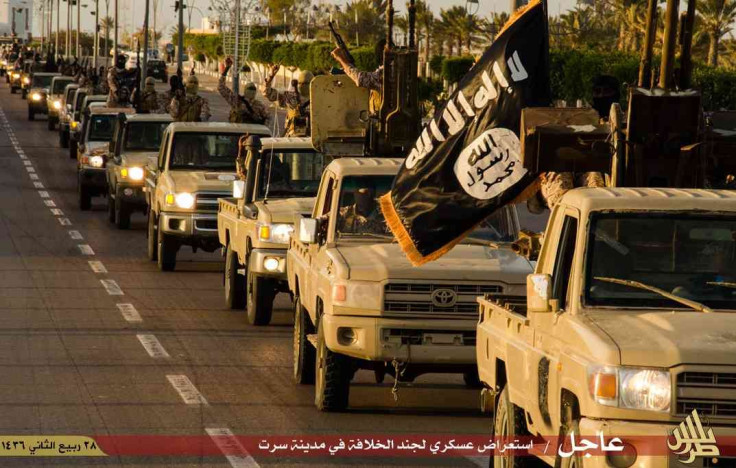Alleged ISIS Fighters Take 9 Foreigners Hostage, Behead 8 Libyan Guards In Oil Field Raid

Militants in Libya took nine foreigners hostage and beheaded eight Libyan guards last week in a raid on a central Libyan oil field, Libya officials confirmed Monday. Gunmen allegedly aligned with the Islamic State group stormed the al-Ghani oil field near the town of Zalla last Friday, abducting four Filipino nationals, an Austrian, a Czech, a Bangladeshi, a Ghanaian and a hostage who remained unidentified, according to the Guardian.
"Foreigners from an Austrian oil services company operating in the field are still missing since the time of the attack," Mohamed el-Hariri, a spokesman for Libya’s state oil company told the Independent.
There are now seven Filipino nationals missing in Libya, all reportedly abducted in oil field raids this month.
Libyan officials blamed the group formerly known as ISIS, as the group has increased its presence in the country since last month and is known for raiding oil fields when it seizes new territory. Selling oil is one of the group’s main sources of income, but Libyan jihadist group Ansar al-Shariah has also made it a habit to attack and seize oil fields. The gunmen’s allegiance could not be independently confirmed.
Libya is home to drilling operations by major European oil companies that have been taking major hits as the country falls deeper into political chaos, making it vulnerable to militant infiltration. Austrian-owned VAOS Oil Service, major Italian oil company ENI and France’s Total have several installations in Libya.
Oil production “is the lifeline of the Libyan people,” military spokesman Ahmed al-Mesmaro said Monday.
Fighting in the area around al-Ghani in the past few weeks has halted production in 11 oil fields as the government has been forced to remove workers. Earlier this month, Islamist fighters were suspected of attacking the Mabruk oil field that is partially owned by the French, killing four guards at the entrance
Friday’s raid took place just as the two warring factions in Libya’s civil war began peace talks in Morocco, the first step toward a potential unity government to combat the growing threat of terrorism in the country and end the years of violent political unrest that has rocked Libya since the 2011 revolution that ousted dictator Moammar Gadhafi.
© Copyright IBTimes 2025. All rights reserved.






















